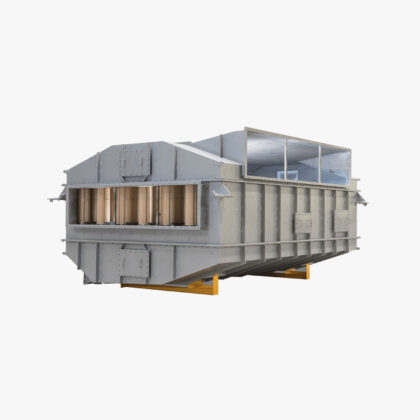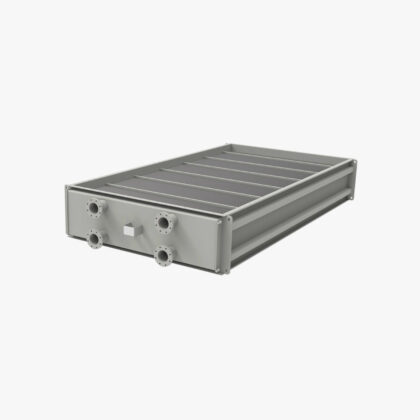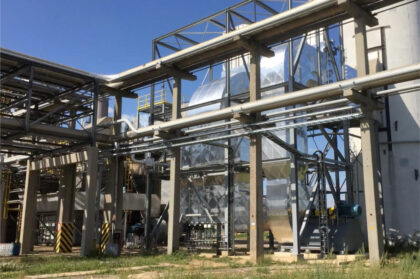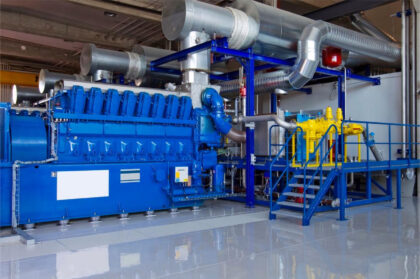Economiser
Heat recovery at high flue gas temperatures
An economiser is a gas/liquid heat exchanger that recovers heat from flue gases, exhaust air from a dryer or oven/furnace to heat liquids for the primary process. It works optimally with flue gases above 150°C.
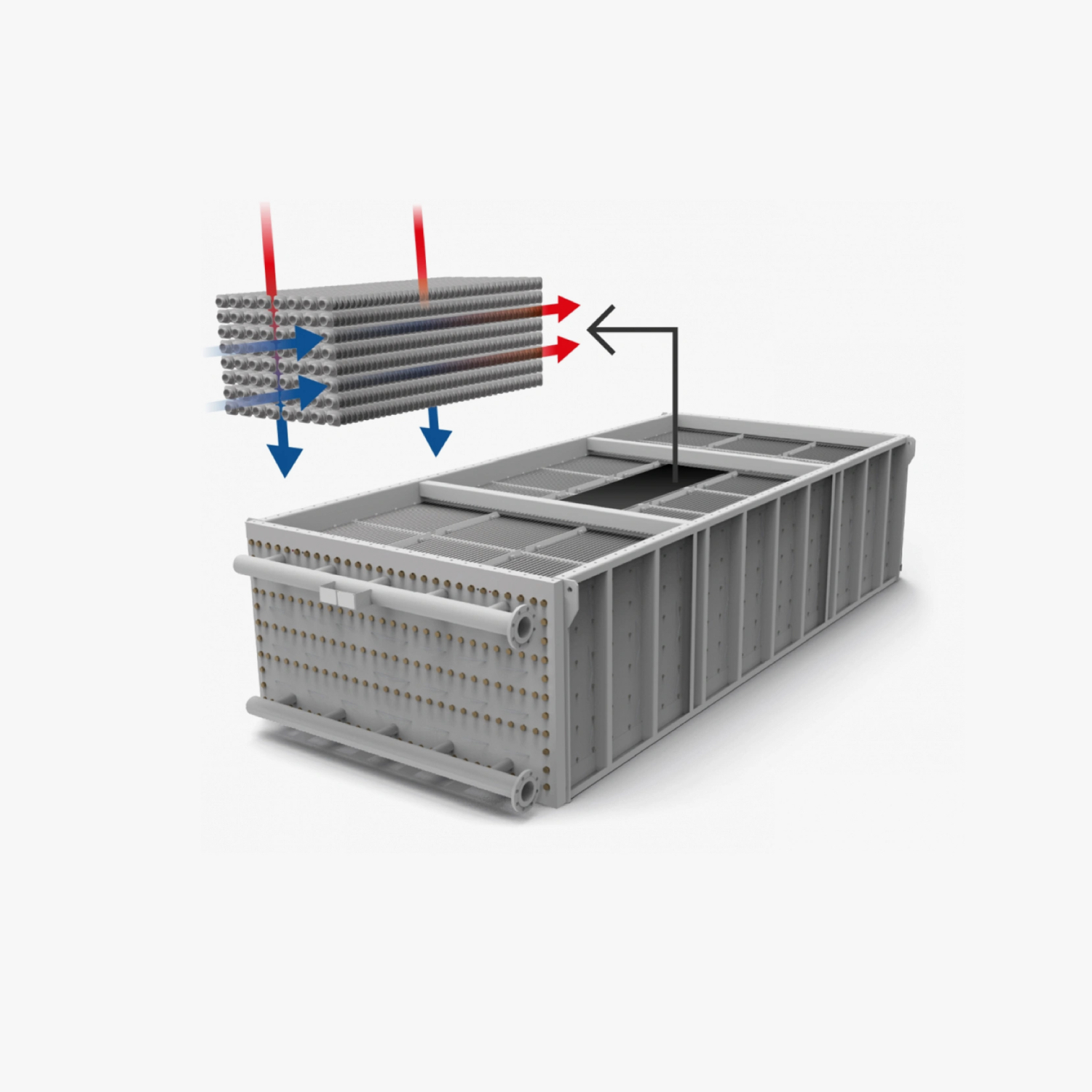
Where are economisers applied?
This type of heat exchanger has many possible applications.
Engineered for:
- Small cylindrical steam boilers
- Large industrial steam boilers
- Dryers
- Furnaces
- Thermal oil boilers
For the preheating of:
- Process water
- Water glycol
- Boiler feedwater
- Return condensate
- Thermal oil
- Cleaning water
The operating principle of an economiser
Tubes are installed in the flue gas stream. Water flows through those tubes absorbing heat from the hot flue gas. The recovered heat can be used to preheat boiler feedwater, process water or a water glycol system. Heat recovery through an economiser delivers significant savings in CO2 emissions and energy costs.
The recovered heat can be used in many ways
- Preheating of boiler feed or process water.
- Heating thermal oil or water glycol.
- To heat buildings.
- For cleaning processes.
- For transport to and use at another location.
Economiser models
Economisers can be made in different configurations.
Construction materials
- Stainless steel
- Polymer
Tube types
- Standard
- Finned
Tube fixations
- One-sided
- Two-sided
Cleaning options
- In-line cleaning system
- No cleaning system
ONTWERPKEUZE
What design is the best match for you?
Your specific application requires a tailored design. Is/are your flue gas, baking fumes or drying air clean and dust-free, or is it corrosive and does it contain sulphur or other contaminants? If the wrong design choice is made, maintenance and operational costs will rise, while efficiency falls. Below is an overview of different types of flue gas, baking fumes or drying air and points of interest when it comes to the design.
Your flue gas or drying air is clean
If the air is free of contaminants and dust, carbon steel and finned tubes are suitable. As the fins increase the heat exchange surface area, this makes for an economical and compact design.
Your flue gas is corrosive
When corrosion is lurking, bare tubes without external fins are a better option. In addition, the structural material must be able to cope with corrosive process conditions. Polymers resistant to extreme corrosion are perfectly suited for this purpose.
Your flue gas, baking fumes or drying air is contaminated
In case of heavily contaminated flue gases, bare tubes combined with an inline cleaning system are the best option. Clogging can occur between finned tubes. The lack of an inline cleaning system can lead to dirt accumulation, which will greatly reduce the efficiency of the heat exchanger, resulting in efficiency reductions.
Your flue gases have a high temperature
At high temperatures, it is recommended to weld the tubes not on two, but only onOne side. This allows the tubes to move freely through the flue gas, therebyreducing thermal tensions. Heat Matrix is happy to help you make the right choices.
Economiser by flue gas type
Contaminating flue gases
Economiser for flue gases containing baking fumes or dusty dry air.
-
MaterialStainless steel
-
Tube typeCounterflow tubes
-
Tube fixationTwo-sided
-
Cleaning Inline
Corrosive flue gases
Economiser for flue gases containing corrosive elements.
-
MaterialPolymer
-
Tube typeStandard
-
Tube fixationTwo-sided
-
Cleaning Inline
Natural gas-fired flue gas
Economiser for flue gases without corrosive or contaminating elements.
-
MaterialCarbon steel
-
Tube typeFinned
-
Tube fixationTwo-sided
-
CleaningManual
High-temperature flue gases
Economiser for flue gases without corrosive elements.
-
MaterialCarbon steel
-
Tube typeFinned
-
Tube fixationOne-sided
-
CleaningNone
Other types of heat exchangers
Besides the air preheater, there are other types of heat exchangers that we regularly use in the heat recovery projects we carry out for clients.
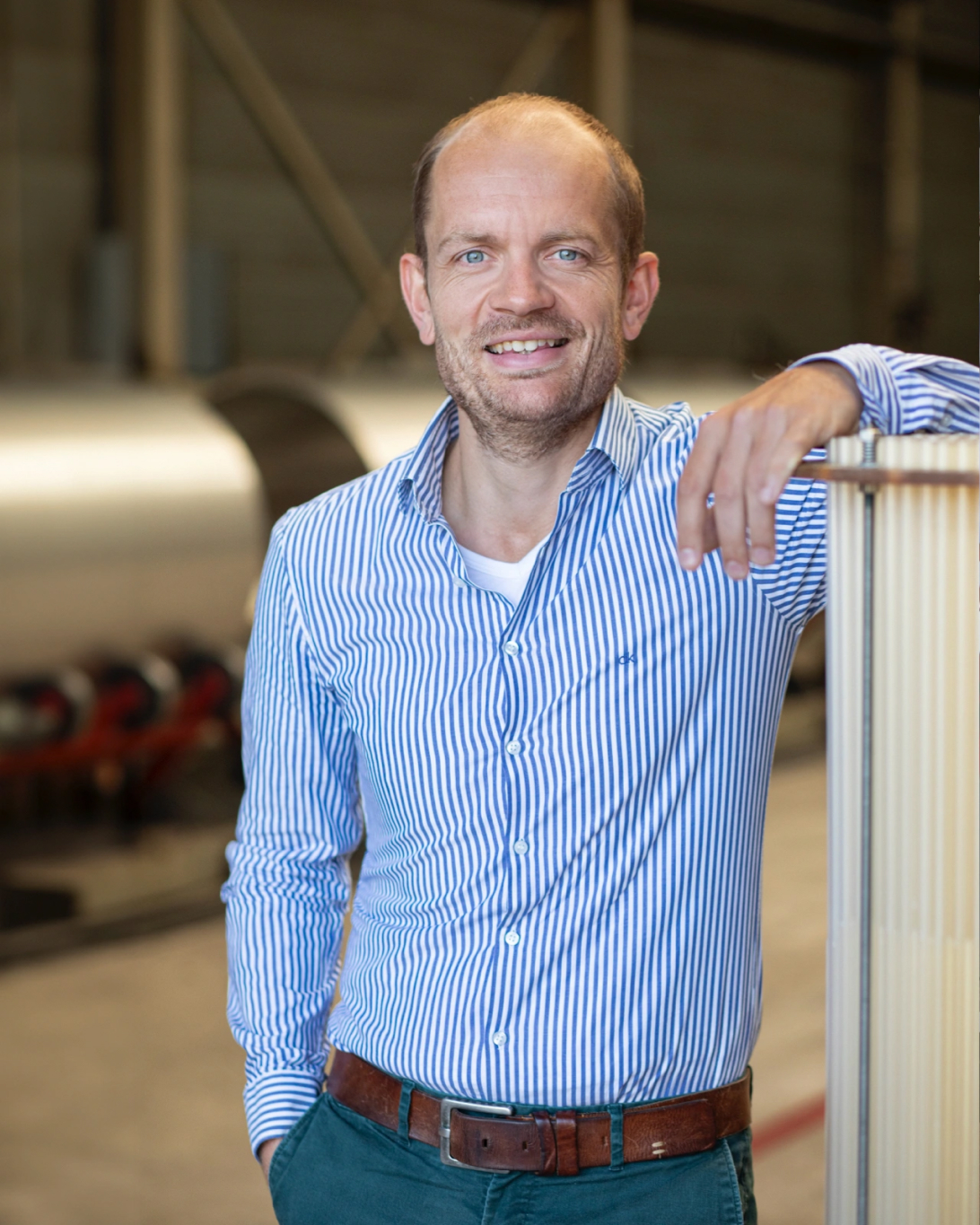
Contact
Curious about your savings potential?
A Heat Recovery Scan gives you quick insight into the most promising concepts for heat recovery, energy savings, reduction of CO2 emissions and payback period.
